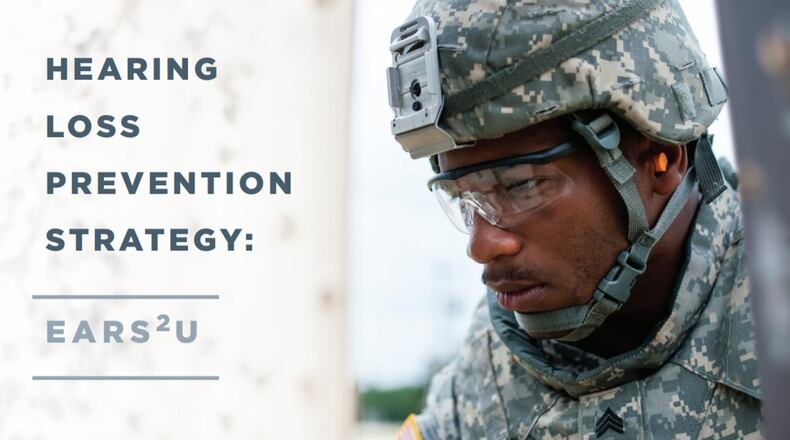For service members, noise-induced hearing loss from exposure to hazardous noise on and off-duty is the most common type of hearing injury. According to the Department of Veterans Affairs, noise-induced hearing loss and tinnitus (ringing, buzzing and other sound in the ears) continue to be one of the most prevalent service-connected disabilities experienced by veterans.
However, that trend is shifting. Each of the military services administers a hearing conservation program, and coupled with the Department of Defense Hearing Center of Excellence, Comprehensive Hearing Health Program, are helping to reduce noise-induced hearing loss among active-duty service members, according to Dr. Theresa Schulz, the center’s prevention branch chief.
“For service members and civilians enrolled in hearing conservation programs, hearing health is improving in the Department of Defense. Evidence of this is seen in an overall decrease in hearing impairment for all DoD components,” said Schulz. “Service members with hearing impairment decreased from 21 percent in 2012 to 15 percent in 2018. The percent of civilians with hearing impairment decreased from 51 percent in 2012 to 40 percent in 2018.”
Schulz added, “The Comprehensive Hearing Health Program benefits all service members, regardless of occupation or specialty, because noise is the most prevalent hazardous exposure faced by our service members on duty, but a significant amount of exposure occurs off-duty. A primary goal of program is to bring visibility to an invisible but preventable injury – noise-induced hearing loss.”
For the general population, the National Institutes of Health, National Institute on Deafness & Other Communication Disorders reports about 20 percent of American adults age 20 to 69 have some trouble with hearing, and roughly 28.8 million could benefit from the use of hearing aids. Among adults age 20 to 69, only about 16 percent of those who would benefit from hearing aids has ever used them, according to NIDCD.
To highlight the prevalence of hearing loss and importance of effective interventions, this year’s World Hearing Day theme was “Hearing for life: Don’t let hearing loss limit you.” The WHO emphasizes timely and effective interventions can ensure people with hearing loss are able to achieve their full potential, and interventions can facilitate access to education, employment and communication.
“Hearing is a critical sense, especially for service members who must be able to see, hear and communicate in order to engage with their families, connect with their communities, and achieve their missions safely and effectively,” said Schulz. “Anyone suspecting a hearing issue should see an audiologist who will run a series of tests to determine the problem, if there is one, and then recommend treatment. And, it is even better to protect your hearing from hazardous noise on and off the job to prevent hearing problems from occurring.”
About the Author
